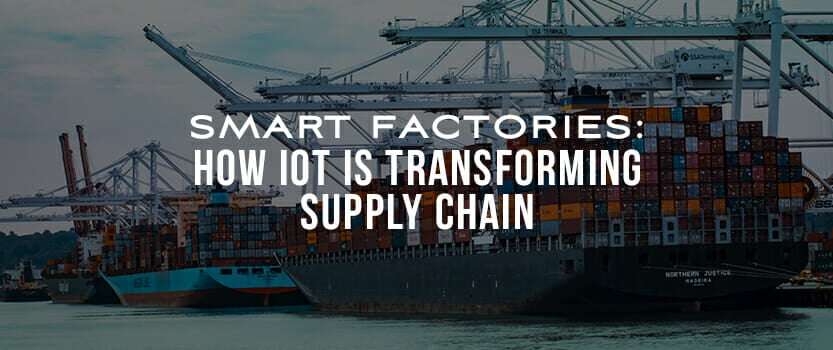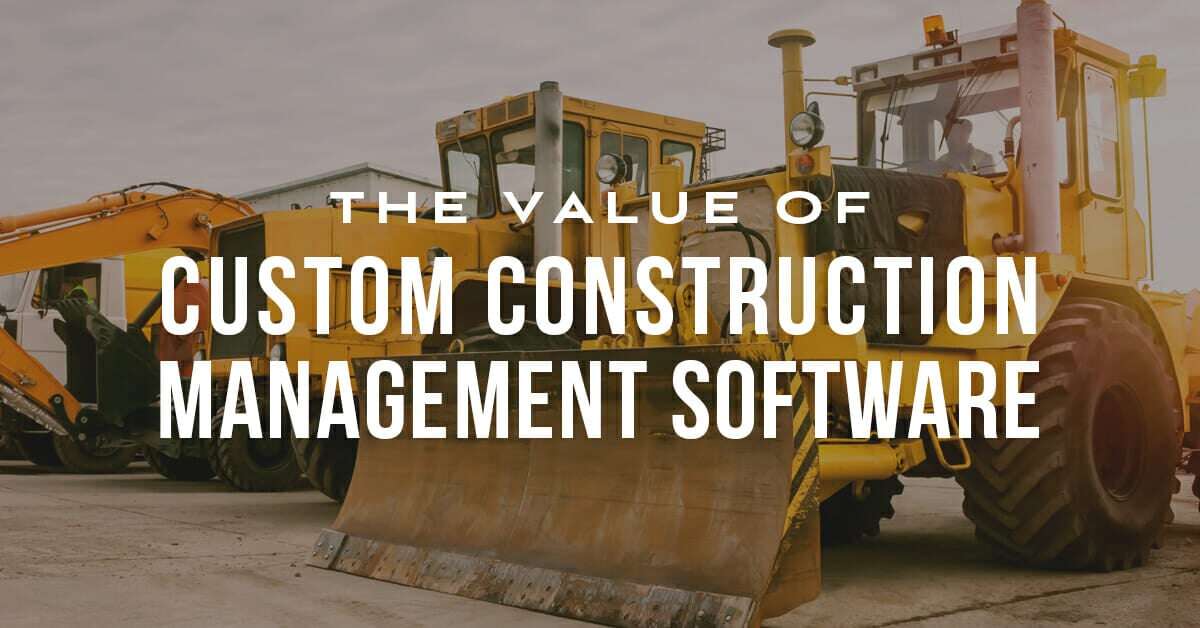4 min read
The Value of Custom Construction Management Software
In the construction industry, effectively managing projects is a critical part of the job. Not only does project management help keep teams...
Improve customer satisfaction and increase operational efficiency with a client portal.
Take control of your operations with customized software solutions.
Help your in-house dev team get more done, faster with our Midwest-based experts.

The Internet of Things (IoT) is a phrase that’s used to describe items, machines, and other goods that are connected to the internet. IoT is rapidly reshaping the world that we live in. At the end of 2018, there were already an estimated 22 billion IoT devices across the world. That number is only projected to grow in the years to come.
There are lots of industries that will benefit from the IoT revolution. But factories will do so more than most. Keep reading to learn how.
Location data is already super important in the manufacturing industry. But IoT should make it even more meaningful. There are a few ways that this is happening.
Manufacturing facilities can attach IoT devices to their shipments or even the vehicles that transport them. These devices can be tracked via GPS satellites that offer real-time data on where the goods are in the delivery process.
Location data generated from IoT devices also let factories track how quickly goods are moving through each phase of the supply chain process on average. This generates meaningful data that factories can use to make targeted improvements in their logistics department.
IoT devices can also be used to monitor the storage conditions of raw materials, products, and anything else that a factory wishes to learn more about. This can be especially important for factories that work with things like food and chemicals, which need to remain in ideal conditions at all times.
IoT devices can provide a bunch of data that factories can use to verify that their storage conditions are always appropriate. This technology can be used to monitor the temperature of a storage room as well as its humidity, light intensity, and more. IoT devices can even trigger an alarm when conditions falter.
Factories that use IoT in the supply chain can also deliver their goods faster than factories that don’t. IoT devices can be used to validate precisely when a new shipment arrives at its destination or at various stages of the supply chain.
The sooner that logistics team members are aware of a delivery, the sooner that they will be able to respond to it and move the goods further down the supply chain. This could lead to serious competitive advantages.
The last section looked at some of the general ways that companies can use IoT to build a better supply chain. Now let’s look at some more specific examples of how IoT is already being used by some of the largest companies in the world.
Supply chain logistics are everything for Amazon. So it’s no wonder that the company has been taking full advantage of the IoT technology.
The company used to have its employees roam warehouses to look for specific products. But it’s using Wi-Fi-connected robots to do that now. This was made possible by the IoT technology of built-in cameras that are connected to the internet.
Maersk Line is huge in the shipping industry. The company teamed with Ericsson to enable real-time monitoring across its entire fleet of ships.
Now, Maersk Line can track its more than 300,000 refrigerated containers as they move throughout 343 ports across the globe. This wouldn’t have been possible with the real-time location data the company receives from IoT devices.
There are lots of car manufacturers that are getting in on the IoT revolution as well. Volvo is a prime example of this.
The Swedish company combines the power of cloud-based services with IoT technologies to support its entire supply chain. The combination of these two technologies has given Volvo greater flexibility with and control over its delivery and shipping processes.
The IoT revolution is already here. Embracing it is a great way to transform your supply chain so that it’s ready for the future. But that’s not the only way for your factory to prepare itself for what’s to come.
Another great way to do so is by building out a future-proof website and mobile application. If you’d like to learn more about how that could support your factory, consider contacting Onsharp.
We’re very experienced with designing and building customized web and mobile applications to support the needs of factories. Get in touch to learn how we can do the same for you.

4 min read
In the construction industry, effectively managing projects is a critical part of the job. Not only does project management help keep teams...

In the last few years, “AI” has been everywhere, from conference stages to boardroom discussions, and it is splashed across headlines. It’s hailed as...

3 min read
In the modern economy, nearly all businesses need to be mobilized via a high-functioning smartphone app to be successful. For the utilities...